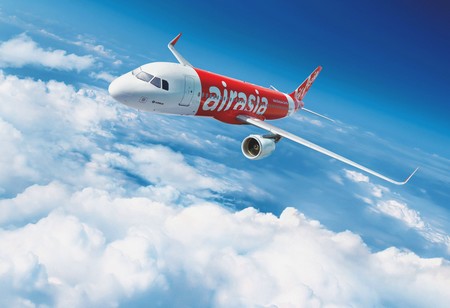
Tata's Major Step to Consolidate the Aviation Business, Hikes Stake in AirAsia India to 84 Percent


CEOInsights Team, 0
AirAsia also has the option to sell the remainder 16.3 percent in the local JV to Tata Sons in two years for 76.3 million ringgit (Rs. 139 crore). AirAsia group cited disruption caused by Covid-19 pandemic as a reason for planning to quit the JV. Calling India a non-core market, it said the proceeds from the sale would be used to re-organise its business in Malaysia. The proposed changes in the shareholding structure of AirAsia India comes more than two years after Tata Sons raised its stake to 51 percent from 49 percent, becoming the budget carrier’s majority owner. When the JV was formed in 2013, the Malaysian company was its largest shareholder with an equity holding of 49 percent.
Industry observers said this was the first among many steps by the Tatas towards consolidation of its aviation business. Chairman N Chandrasekaran had earlier said that consolidation is a route that the group would follow. “We have far too many companies in the Tata group and some level of consolidation is essential,” Chandrasekaran had told Tata Review, the in-house magazine of the group.
Beside AirAsia India, Tatas own 51 percent stake in full service carrier Vistara. It is also in the race to acquire state-owned Air India. AirAsia, once the poster child of a low-cost airline revolution in Asia, is seeking to raise as much as 2.5 billion ringgit ($600 million) by the end of the year as coronavirus disrupts travel globally. The
Chairman N Chandrasekaran had earlier said that consolidation is a route that the group would follow
Subang, Malaysia-based budget carrier, posted its biggest-ever quarterly loss in August and recently shut down its Japanese subsidiary.
AirAsia and Singapore Airlines were the first two foreign investments in the aviation sector in India after the government in power had permitted foreign direct investment of 49 percent by foreign airlines in domestic carriers. Following the decision, Abu-Dhabi-based Etihad bought 24 percent in Jet Airways while AirAsia India and Singapore tied up with Tatas to set up new airlines- AirAsia India and Vistara.
On Tuesday, AirAsia said, “Since the start of the Covid pandemic, the aviation industry has been one of the hardest hit industries. Airlines around the world have cancelled flights and grounded planes and the India unit is no exception. Due to this, the company expects further capital requirements for the India business. As India is a non-core market for AirAsia (being a non-ASEAN country), the company will continue to regularly re-assess its business strategies and dispose of non-core investments to augment its liquidity.”
Tony Fernandes along with Bo Lingam, president (airlines) at AirAsia group, as well as Banmali Agrawala, chairman AirAsia India, and Sunil Bhaskaran, CEO of AirAsia India, have addressed employees on the change in ownership, according to sources. Tony is learnt to have said that after AirAsia has brought up the child, it’s up to the Tatas now to handle it in adolescence.
The airline has never made money since inception in what is one of the world’s most difficult markets, where high fuel taxes and cut-throat fares often make operations unprofitable. It has also grappled with ownership and control issues. In 2017, the Central Bureau of Investigation filed an FIR alleging that Fernandes had tried to bribe Indian government officials to get faster approval for foreign operations. The carrier, which has a market share of 6.8 percent, employs more than 3,000 in the country.